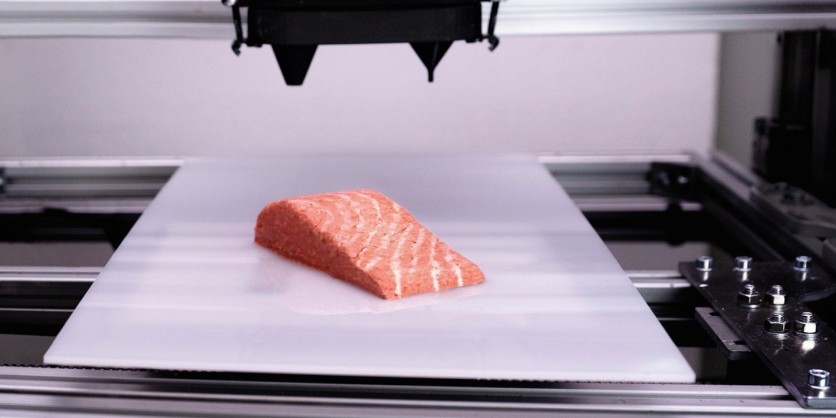Revo Foods is set to introduce its 3D-printed vegan salmon filet in Vienna, Austria's Billa Pflanzilla, the vegan flagship store under the Rewe Group. This milestone marks the debut of a 3D-printed meat alternative in supermarkets.

Revo Foods Launching 3D-Printed Vegan Salmon Filet in Austrian Supermarkets
A groundbreaking development is set to make waves in Austrian supermarkets as food tech startup Revo Foods prepares to introduce its 3D-printed vegan salmon filet named "THE FILET - Inspired by Salmon" on September 14.
Interesting Engineering reported that this innovative product not only marks the debut of 3D-printed vegan seafood but also signifies the first appearance of a 3D-printed item in supermarkets, pioneering a new era of sustainable food production.
3D-printed fish represents a crucial step toward eco-friendly alternatives to traditional fishing and aquaculture methods. Apart from the threat of extinction of numerous fish species due to overfishing, this innovative approach also aims to mitigate the environmental impact of these practices that often result in habitat destruction and pollution.
Sustainability, Availability
According to Revo Foods, approximately 60 percent of the world's fish stocks are now overfished. The adoption of 3D printing technology offers a sustainable alternative for producing fish-based products without further depleting wild fish populations.
Many 3D-printed fish products incorporate ingredients such as algae, seaweed, or other plant-based materials to replicate real fish's authentic texture and taste. These components can be responsibly sourced and supplied, making them an environmentally friendly choice.
Revo Foods on Retaining Authenticity
Revo Foods' latest offering is crafted using mycoprotein extracted from filamentous fungi. This nutritious alternative has earned the vegan fish an impressive Nutriscore rating of "A" due to its rich protein content and Omega-3 fatty acids.
Mycoprotein stands out due to its minimal processing needs and lower resource consumption, particularly in terms of water and emissions compared to traditional fish production. This environmentally conscious approach makes mycoprotein a far more sustainable choice.
Green Queen reported that this adaptability arises from the customization options available for 3D-printed fish, allowing for control over their flavor, texture, and nutritional content.
Using materials low in cholesterol, rich in beneficial fatty acids, and devoid of common fish pollutants makes it feasible to produce fish alternatives that cater to diverse nutritional requirements and individual preferences.
Similarly, Revo Foods has introduced an innovative approach to large-scale production of 3D-printed food through its proprietary 3D-MassFormerTM technology, which is protected by patents. This breakthrough enables the efficient mass production of the company's distinctive food products.
Robin Simsa, the CEO of Revo Foods, emphasized the company's role in shaping the future of the food industry, stating that they are not merely offering a vegan alternative but are leading the way in redefining the entire food landscape.
Related Article : Scientists Are 3D Printing Insects and Mixing Them With Vegetables To Help Solve Food Crisis

![Apple Watch Series 10 [GPS 42mm]](https://d.techtimes.com/en/full/453899/apple-watch-series-10-gps-42mm.jpg?w=184&h=103&f=9fb3c2ea2db928c663d1d2eadbcb3e52)



